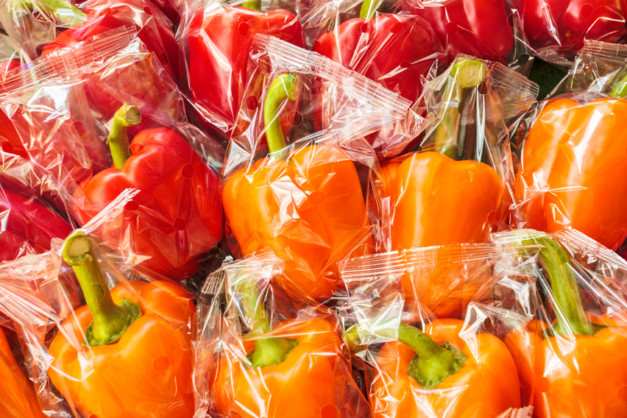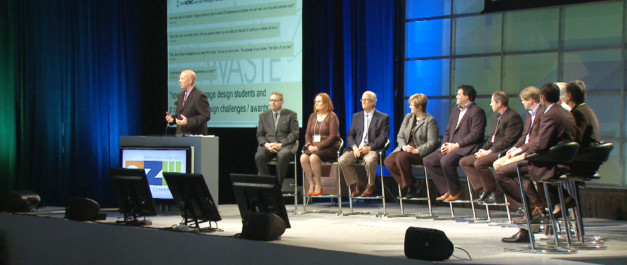How Does Food Packaging Affect Food Waste? Find Out at #ZWC19
What types of packaging are best for preventing food waste? That’s the big question driving new research from the National Zero Waste Council and Value Chain Management International. FOOD WASTE AND PACKAGING In recent years, there’s been a growing awareness about the staggering amount of food wasted around the globe, along with an explosion in…
Read more
Read more
ZWC19 Keynote Arthur Huang is Turning Trash into Treasure – in Ten Minutes or Less!
Arthur Huang blew our minds last year with his work at MINIWIZ. We’re thrilled to have him back as a keynote for ZWC19 to hear his latest upcycling adventures. Taiwan-born, Cornell-trained architect Arthur Huang is a pioneer of upcycling and the circular economy. Recently, his company MINIWIZ moved its headquarters to Singapore, a wealthy city-state…
Read more
Read more
Are You a Plastic Innovator?
Innovation Showcase to Highlight Made-in-Canada Solutions Plastic pollution. News about the state of marine environments has made the need for solutions even more urgent. Fortunately, great ideas are emerging from a number of sources, including science labs, start-ups, and policy groups. Recognizing the  power of innovation,  Canada’s National Zero Waste Council  and Think Beyond PlasticTM…
Read more
Read more
Innovation, Inspiration, and Big Ideas – What to Expect at #ZWC2017
The 2017 Metro Vancouver Zero Waste Conference takes place on November 1. This year’s theme is ‘A Circular Economy Within Reach.’ Important issues such as ocean plastics, textiles, business and innovation, and circular cities are on this year’s agenda, along with keynote addresses by scientist and retired NASA astronaut Cady Coleman and food waste pioneer…
Read more
Read more
2017 Zero Waste Conference Puts a Spotlight on Plastic in Our Oceans
It's hard to miss the impact of plastic pollution; especially in our oceans. Whether it's social media posts, ominous news stories, or documentaries such as A Plastic Ocean, we are awash in images of polluted seas, littered beaches, and struggling marine and bird life. At first glance, it all seems quite overwhelming. At the 2017…
Read more
Read more
From Waste Stream to Revenue Stream, Full Cycle Closes Loop on Food Waste
Would you like to change the world with us? That's the provocative question Full Cycle Bioplastics CEO Andrew Falcon puts to the audience at the end of his presentation at the 2016 New Materials and Packaging Expo. The company's proprietary process may just deliver on that ambitious goal. Transforming Organic Waste Consumers are demanding their…
Read more
Read more
Richard C. Thompson – Looking for Solutions to Oceans of Plastic
It's a startling, sobering statistic; that in the first ten years of the 21st century, more plastic has been produced than during the entire 20th century. This useful, adaptable material has become a mainstay of the modern world. But plastic waste can be found everywhere from the bottom of the ocean to the highest mountain…
Read more
Read more
One Conference, Four Streams – ZWC 2016 Offers Cross-Disciplinary Insights
Closing the loop in a circular economy leads to a realization. Achieving a future without waste demands we recognize the interconnectedness of our efforts across disciplines. At Metro Vancouver's 2016 Zero Waste Conference we will be looking at zero waste through the lens of four distinct sessions. This comprehensive approach not only promises 'something for everyone'…
Read more
Read more
Plastics Recycling, Pitfalls & Potential
Mike Biddle, Founder of MBA Polymers calls plastic waste the last frontier in recycling. He knows the challenges and opportunities to be mined from complex waste streams. Mike Biddle has taken on one of the biggest challenges in our modern world. How to turn plastic waste into plastic resources. Despite the value of plastic and its ubiquity, it…
Read more
Read more
ZWC 2014 – Plastics in Focus Panel
Plastic. It's an integral part of our modern world. And more and more is recovered and recycled every year, as its impact on the environment and its value as a resource become more widely known.  But, the vast majority still remains in the garbage, or becomes litter in our communities and a toxic health hazard in…
Read more
Read more


